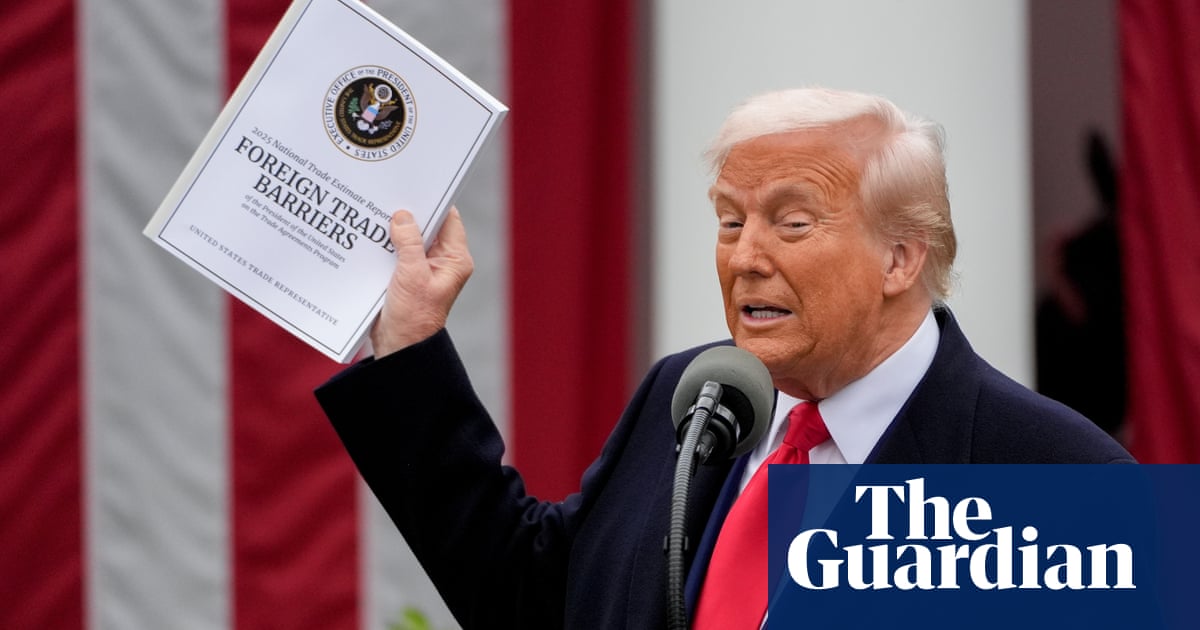The Republican-led Senate has delivered a rare rebuke of President Donald Trump and his signature trade agenda.
Senators voted 51-48 Wednesday to reject the national emergency Trump declared earlier this year to justify his plan to slap 25 percent tariffs on Canadian imports. The vote took place hours after Trump delivered remarks from the White House rolling out his latest plans to slap new tariffs on a wide range of products.
Republican Sens. Susan Collins, Mitch McConnell, Lisa Murkowski and Rand Paul joined all Democrats in backing a resolution from Virginia Democratic Sen. Tim Kaine that would end that national emergency. Paul, of Kentucky, co-sponsored the measure.
McConnell offered Paul, a fellow Kentuckian, a fist-bump on the chamber floor. They broke out into applause as the gavel went down and closed the vote.
The dissent from this handful of Senate Republicans is purely symbolic: Speaker Mike Johnson has already moved to prevent a floor vote in the House to end the types of national emergencies upon which Trump is relying to levy his tariffs.
Still, the vote stands as the first major break with Trump since the start of his second term from a Republican-controlled chamber that has otherwise been mostly compliant, from approving controversial cabinet nominees to standing aside as the Department of Government Efficiency slashes through the federal government.
Trump had also publicly pressured GOP lawmakers to vote against the Democratic-led resolution, going so far as to call Collins, Murkowski, McConnell and Paul to “get on the Republican bandwagon, for a change." Senate GOP leaders were also aligned against the resolution.
James Braid, Trump’s top legislative aide, even took to the Hill Monday in an attempt to assuage Republicans anxious about the potential ramifications of the president’s trade war escalation. But some senators were ultimately unable to stomach the economic attack on the nation’s northern neighbor and leading trade partner — let alone the likely disruptions to core industries across farm and border states.
Collins, for instance, had previously expressed concerns about the ramifications of Trump’s Canada tariffs for her home state of Maine, whose economy — and core industries such as lobstering, pulp and paper, and potatoes and blueberries — is integrated with that of its bordering nation.
"Of course I share the president's goal of stemming the tide of dangerous fentanyl that flows into the U.S. I commend him for taking far stronger actions to halt this dangerous and deadly flow than did the previous administration,” Collins said on the Senate floor. “I do not, however, agree with his invoking the powers of the International Emergency Economic Powers Act to impose tariffs on Canadian goods and products. The fact is, the vast majority of fentanyl in America comes from the southern border."
Last month, Trump imposed a 10 percent tariff on Canadian oil and a 25 percent tariff on all other goods to pressure the country to do more to stop undocumented migrants and fentanyl from entering the United States.
Alaska’s Murkowski, in an interview, said without equivocation, “the tariffs on Canada are going to hurt my state. It’s going to hurt our neighbors there.”
Following the vote Wednesday evening, both Murkowski and Collins also said that while White House officials might have sought to quell worries around tariffs ahead of consideration of Kaine’s resolution, they were not the subject of direct whip efforts from within the administration to change their positions.
Earlier Wednesday, Trump announced tariffs spanning between 10 percent and 50 percent on countries across the globe, following through on his promise to impose so-called reciprocal tariffs on foreign trade partners and upending the global economic order in the process.
Several Republican senators were seated in the front row of the Rose Garden for Trump’s remarks announcing his plan, which involves a baseline 10 percent tariff on most countries and then a higher reciprocal tariff on about 60 others.
Trump made his order under the International Emergency Economic Powers Act, claiming that the $1.2 trillion U.S. trade deficit constitutes a national emergency. The Senate vote Wednesday evening was to limit those very powers, specifically when it comes to the national emergency Trump declared in order to impose the 25 percent tariffs on Canada.
By the time he announced the new trade policy, Collins, Murkowski, McConnell and Paul had all come out in support of the Kaine resolution. Kaine predicted more Republicans would come on board once they heard what Trump had in store for the new tariffs. Most Senate Republicans, however, declined to cross party lines.
“As you know, I’ve got my issues — I represent a state that is very dependent upon exports,” Senate Majority Leader John Thune (R-S.D.) told reporters of Trump’s tariff agenda broadly. “That’s always a consideration for me; first and foremost, there’s a home state interest there. But I do appreciate the president's focus on making sure we're getting better deals, and giving business an incentive to do business here in the United States.”
Doug Palmer and Jordain Carney contributed to this report.

 German (DE)
German (DE)  English (US)
English (US)  Spanish (ES)
Spanish (ES)  French (FR)
French (FR)  Hindi (IN)
Hindi (IN)  Italian (IT)
Italian (IT)  Russian (RU)
Russian (RU) 























Comments